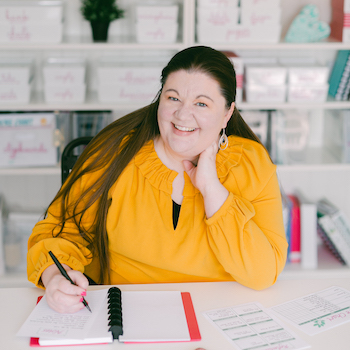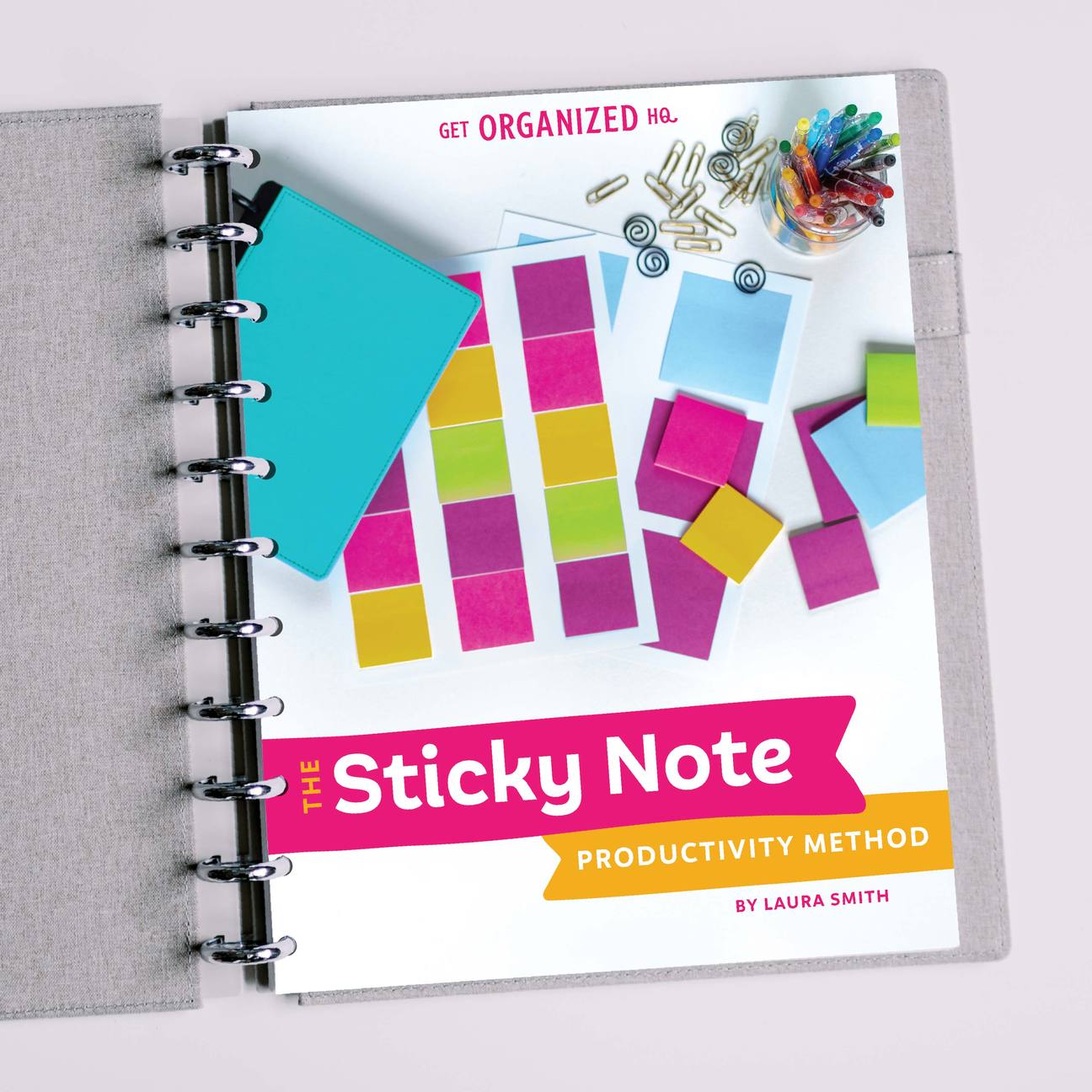How Your Stuff Impacts Your Day with Tracy McCubbin
When you're feeling stressed out by the daily grind, decluttering is likely one of the furthest things from your mind. In today's episode we're sitting down with Tracy from dClutterfly to talk about how removing excess stuff from our spaces actually has a huge positive impact on our day-in, day-out routine. Listen in!
Episode Links
Click here for the full episode transcript.
Today we are talking with Tracy McCubbin from Dclutterfly. She is going to share with us how she manages the various daily to dos and some of the mindsets that can help you get decluttered, stay decluttered, and have that less stress and more peace that you are looking for.
TRACY’S TO DO LIST
Tracy’s days look different every day because she has a client based business. She could be going to a job site, taking a zoom meeting, managing employees, or managing her own home and life.
One of the most important things she does either at the end of the day or first thing in the morning is create her to do list. She finds she gets off schedule when she isn’t realistic about time management and how long it’s going to take to get something done. So, she builds in breakdowns, things like when a 15 minute phone call turns into 45 minutes.
What Tracy has found works for her is to have a master to do list in Google that holds everything that’s going on right now, separated between personal and work. She then pulls from that list what has to get done today.
It’s important to be realistic about what you can get done in a day and don’t over schedule yourself. Your master list can’t be your daily to do list.
SCHEDULE WHAT’S IMPORTANT
When making the to do list, we have to include other important things such as exercise and getting together with friends, giving them the same level of importance as chores.
There are sometimes things that are urgent, and they’re not always the same as the things that are important. We have to be careful not to let the urgent things stop us from doing the important things such as spending time with our family or exercise because we feel those things can be pushed to tomorrow.
By scheduling our day, we are shifting from being reactive to proactive which is much less stressful.
BENEFITS OF DECLUTTERING
Decluttering is about having a life that is simple and easy to maintain. The best way to be organized is to have less stuff, and the only way to have less stuff is to declutter.
Decluttering, organizing, and cleaning are not the same thing. Decluttering is getting rid of things you don’t love, need, or use. Organizing is creating systems and putting things away so you know where to find them. Cleaning is cleaning.
A lot of frustration comes from not realizing that these are all different things and that we can’t try to do them all at the same time. In general, decluttering is going to be the first step.
HOW TO START DECLUTTERING
If you feel overwhelmed, and you are in the position to do it, hire a professional organizer. Another option is to ask a friend to come and help you.
Also understand that you have to book the time to do it. Maybe you send the kids to the grandparents on a Saturday morning. But you have to block out the time to focus on decluttering.
IT’S NOT A ONE AND DONE
Decluttering is something you come back to over and over again. It’s not what we think of as one and done.
Stuff keeps coming into your house. People give you gifts. Mail comes every day. Kids, especially, bring in lots of things.
So, it’s important to not get discouraged because clutter comes back. You didn’t fail. But, decluttering does get easier, it becomes more like a maintenance task.
RETHINKING PURCHASES
One thing that starts to happen when you begin to regularly declutter is you start to rethink your purchases. If you are shopping and you tell yourself you can always donate it, stop and think about why you are even bringing it into the house to begin with.
Tracy suggests taking time to think over purchases before buying. One way she does this for something she wants to buy, for every $100 that it costs, she waits 24 hours until she buys it. So if it’s a $400 vacuum cleaner, she waits four days and does her research. You can choose any dollar amount that works for you.
Another tip is to stop using the words “I need”. Instead, say the word “want”. Just by changing the language you begin to realize that you just wanted an item usually because something else was going on in your life at that moment. You may have been annoyed or feeling lonely.
KEEP A LIST OF NEEDS
It’s also helpful to be mindful of food purchases. Having a list of groceries that you need all the time, things that you eat all the time, is helpful. Before you go to the store, check the list and see if you have enough or if you need to buy more. This helps to reduce food waste as well.
Tracy enjoys going to the farmers market and working her weekly meals around what she purchased. Another option is to have theme nights such as Taco Tuesday. Planning leftover night also reduces food waste.
BEING AWARE
In some ways, things are stacked against us when trying to be mindful of our purchases and reducing waste. We are being marketed to all the time. But really, we just need to pay attention to what we already have in our homes.
Notice the yogurt that is going to go bad if no one eats it. If you are giving away clothes with tags still on them, maybe you’re buying too much or projecting too far ahead and ending up with extras you can’t use.
TRACY’S STRUGGLES
Tracy says she is terrible at opening her mail. It stacks up and she just doesn’t deal with it. As a result, she’s missed invitations.
She also takes a long time to put her clothes away, leaving them to sit in the laundry basket. She’s working on seeing the task all the way through to end.
These struggles that we all have in some form do not mean we have failed. We are always going to be working on implementing systems and looking for ways to improve.
LIFE CHANGES
We also need to recognize that life changes and sometimes our habits don’t. We get used to buying groceries for a family of five, but when it’s only two of us, we are still buying in the same way we did before.
It’s a process. It doesn’t mean you’re lazy or disorganized. It means your life has changed and you haven’t caught up to it yet.
OPPORTUNITIES FOR PROGRESS
These are all opportunities to make progress. If we want a less cluttered space, find an area where clutter is coming in and work on that.
There are so many factors that play into our decluttering progress. How do you process information? Are you dealing with ADD? Are you dealing with grief? Give yourself grace and recognize you are only human.
FUNCTION OVER PERFECTION
We are all trying our best and there is no perfect. There is only what works for us. Instead of looking for perfect, look for what works for your home, and what works for your family.
In Tracy’s second book, Make Space for Happiness, she talks about having a home that runs well, a place where you feel at home.
WHAT IS YOUR GOAL?
The first step is deciding what is your goal? Then figure out your why. Your why is never because you’re lazy or a bad housekeeper. Find the positive why.
For example, maybe you want your guest room empty so that your grandkids can come visit. Right now it’s full of stuff so they have to stay in a hotel that they really can’t afford, so they don’t come and visit.
That’s your motivator, to have your grandkids come visit you. That’s why you want to declutter the guest room.
LESS STRESS, MORE PEACE
Tracy has purchased an old fashioned alarm clock and no longer keeps her phone in her room at night. She’s no longer scrolling at night, which was causing her to stay up later than she wanted to.
She has found that she not only goes to bed on time, but she’s sleeping better. She’s also getting a lot of books read during the time she would normally be spending on her phone.







 Copyright 2025, Get Organized HQ.
Copyright 2025, Get Organized HQ.